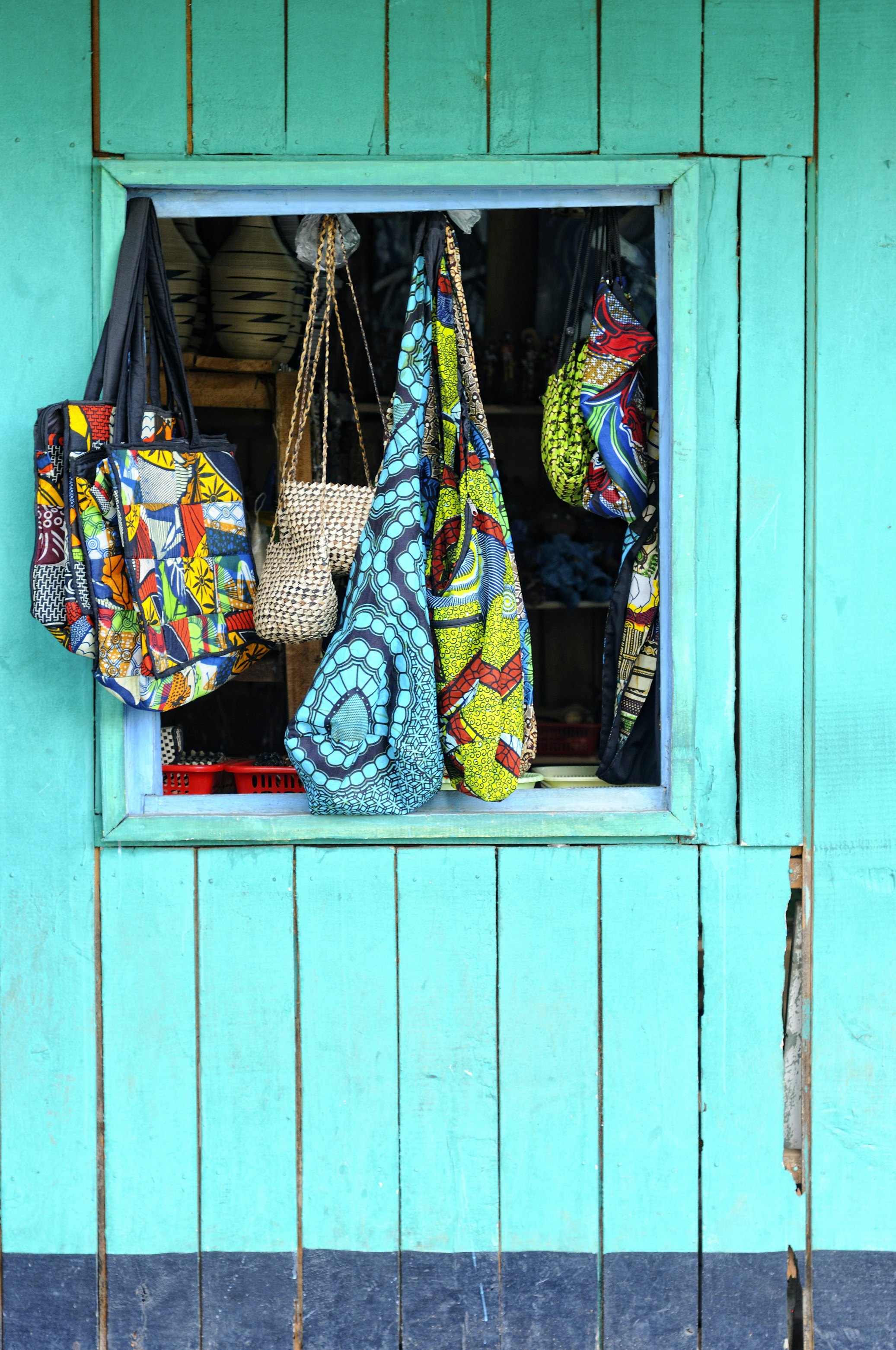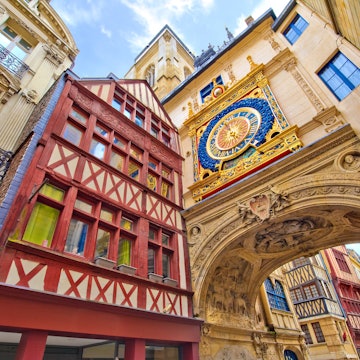
Rwanda’s culture is one of a resilient people
Sponsored by

Nov 30, 2023 • 5 min read

Rwanda’s story is one of ambition, resiliency, and astounding regeneration in the face of tragedy © Getty Images; Illustration by Dustin Johnson / Lonely Planet
The ‘Land of a Thousand Hills,’ as the East-African nation of Rwanda is often referred to, can also be called the land of a thousand hopes. Traveling here is awe-inspiring: Rwanda’s story is one of ambition, resiliency, and astounding regeneration in the face of tragedy.
From the catastrophe of the 1994 Civil War and the Genocide Against the Tutsi that followed, Rwanda three decades on is one of the continent’s cleanest, safest, and economically advanced countries, healing ethnic divides, reversing poaching trends, and building a roadmap for sustainable development that other nations aim to follow.

Remembering, and recovering
After the Genocide Against the Tutsi, Rwanda had to build its country back from nothing. The Rwanda Development Board was created in 2009 to oversee the country’s efforts to boost tourism, environmental conservation, foreign investment, and broader economic development. The upside to building from scratch was that taking a risk on ambitious initiatives was possible.
On a quiet, tree-lined street in Gisozi just outside of central Kigali, the mood is solemn and contemplative. A sign on the wall reads: “We can all be champions of humanity by standing against division wherever we live.” This is Kigali Genocide Memorial, a museum that records and narrates, in brutal detail, the history of both the genocide against the Tutsi in Rwanda and other genocides around the world. More than 250,000 people are buried on the grounds of the museum; survivors have been coming here to heal for years.
The practice of gacaca, a system of traditional community courts that already existed in Rwandan culture to settle local disputes, played a crucial role in this process. For more than ten years, gacaca courts gathered weekly in villages across the country, giving communities the chance to face the accused, recount what had been done to them, and how it happened. While not perfect, gacaca continues to be one of the most comprehensive – and large-scale – programs of post-conflict justice in the world, serving as a platform for truth-telling, justice, and ultimately, reconciliation.

Umuganda, and Rwandan royalty
A short drive from Gisozi to Butare provides more insight into Rwandan culture. At the Ethnographic Museum, one of Africa’s most prestigious ethnographic collections showcases the traditions of pre-colonial life in Rwanda.
It explains the concept of umuganda, translated from Kinyarwanda as “coming together in common purpose to achieve an outcome.” Umuganda is the process of asking for help from family, friends, and neighbors to achieve a difficult task, and it was re-introduced into Rwandan society after the 1994 genocide against the Tutsi in an effort to re-build the country.
Today, umuganda is a scheduled day on the calendar, taking place on the last Saturday of each month, and visitors are welcome to participate. For a day, entire communities come together to perform volunteer work such as cleaning streets, repairing public structures, building houses for those in need, and more.
Meanwhile, the King’s Palace Museum outside of Kigali is an opportunity to travel back to the times of Rwandan royalty to see reconstructions of traditional royal residences, learn about the majestic Inyambo, the long-horned cattle bred specifically for the royal ceremonies, and even see a few of these cows perform some of their duties.

From poaching to protecting
Volcanoes National Park in northwest Rwanda hugs the slopes of the Virunga massif, a chain of eight colossal volcanoes that spans across Rwanda, Uganda, and the Democratic Republic of Congo. The national park is home to the endangered mountain gorillas – Rwanda is known worldwide for its silverbacks, and for good reason: according to the African Wildlife Foundation, it is the only great ape species in the world experiencing population rise.
While the numbers are rebounding today, the gorilla conservancy project at the Volcanoes National Park could have ended in a dramatically different way, were it not for the Gorilla Guardians Village that put former gorilla poachers on a new path.
With the support of a local community, the Gorilla Guardians Village project started employing former poachers in 2004 and with that, kicked off a transformation. Visitors of the Volcanoes National Park stop by the village to get immersed in Rwandan traditional dance, food, and crafts, buy souvenirs, and learn the stories of people who became the guardians of the animals they used to hunt.
“Before I started to play for the Gorilla Guardians Village, I was a hunter,” says Kabatsi Felicien, a former poacher who now plays inanga, a traditional string instrument, at the Gorilla Guardians Village. “Today, I am a musician. I no longer need to hunt for animals. Instead, I am here protecting the forest. I’m singing these stories for tourists from all around the world, and they leave remembering the traditional music of Rwanda.”

Kigali arts scene
Back in Kigali, another story of hope has been unfolding at the Nyamirambo Women’s Center. The non-profit project was started by a handful of women living in Nyamirambo, one of Kigali’s oldest neighborhoods, in 2007. Nyamirambo founders wanted to address gender-based violence, inequality, and discrimination while empowering local women. Today, the center has grown into a self-sustaining organization that offers artisan goods made with the traditional kitenge fabric, walking tours in Nyamirambo, cooking classes at one of the women’s homes, and more.
“Art is the key to development of this city,” says Emmanuel Nkuranga, a self-taught painter and co-founder of Inema Arts Center, a multifaceted art gallery and creative organization in Kigali that provides community art classes, artist-in-residence opportunities to emerging Rwandan artists, and a platform for Rwanda’s creative sector to thrive. Nkuranga means business: after almost a decade at the helm of Inema with his brother Innocent Nkurunziza, he opened Choose Kigali, a multi-floor venue in the heart of the capital that showcases a wider array of contemporary African art and provides unique artist-led experiences like helicopter-ride-and-paint Bush Creativity Day or insider tours of Kigali’s flourishing creative scene.
Started by another Rwandan artist Pacifique Niyonsenga, Niyo Arts Center & Café hosts 17 Rwandan artists-in-residence at its space in the central Kacyiru area of Kigali. Contemporary African art, music, and dance performances are among some of the regular exhibits at the gallery; 40 percent of the profits go to the Niyo Foundation, an organization dedicated to lifting women and children out of poverty.
“When you hear about Rwanda, you hear about our history of the genocide,” says Nkuranga. “But once you come here, you see color. You see beauty. You find that Rwanda is much more than what you read on the news.”
He adds, “This is why we’re here.”
Sponsored by Visit Rwanda
As a travel entertainment and inspirational media outlet, we sometimes incorporate brand sponsors into our efforts. This activity is clearly labeled across our platforms.
This story was crafted collaboratively between Visit Rwanda and Lonely Planet. Both parties provided research and curated content to produce this story. We disclose when information isn’t ours.
With sponsored content, both Lonely Planet and our brand partners have specific responsibilities:
-
Brand partner
Determines the concept, provides briefing, research material, and may provide feedback.
-
Lonely Planet
We provide expertise, firsthand insights, and verify with third-party sources when needed.













